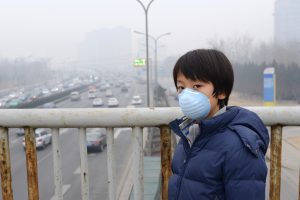
The research team analyzed data on kidney biopsies taken over the span of 11 years from 71,151 patients across China, covering all age groups.
The likelihood of developing membranous nephropathy – an immune disorder linked to kidney failure – increased 13 percent annually over the 11-year period. Areas with the highest particulate air pollution had the highest rates of membranous nephropathy.
Lead researcher Fan Fan Hou said, “Our primary finding is that the frequency of membranous nephropathy has doubled over the last decade in China. We show that the increase corresponds closely with the regional distribution of particulate air pollution.”
Air pollution linked to higher rates of chronic kidney disease
Alternative studies have also found a link between air pollution and increased rates of chronic kidney disease. Kidney disease prevalence varies largely across the U.S., pointing to the regional variation of individual risk factors.
The researchers looked at data from 1.1 million Americans to determine if air pollution was one of the risk factors for chronic kidney disease. In addition to patient information, the researchers also looked at air quality in the U.S. counties.
The researchers uncovered that there is a link between chronic kidney disease and particulate air pollution, even after adjusting for other risk factors associated with chronic kidney disease, such as age, diabetes, and high blood pressure.
Lead researcher Jennifer Bragg-Gresham said, “If air pollution is a risk factor for CKD, the impact is likely to be even greater in countries where pollution levels are much higher than in the U.S. Future investigations should include lab-based diagnosis of CKD, longitudinal data, measures of multiple air pollutants and individual exposure, and more extensive control of confounding factors.”
Air pollution exposure prevention tips
Avoiding air pollution may seem impossible, but these helpful tips can help you protect your health from its harmful effects:
- Always check air pollution levels prior to leaving your house.
- Use less energy in your home.
- Avoid outdoor activities when air pollution is at its highest.
- Walk, bike, or carpool to reduce air pollution.
- Fill up your gas tank after dark – the sun turns gases into pollution.
- Don’t burn wood or trash.
- Use hand-powered electric lawn care.
- Don’t smoke or allow others to smoke indoors, and support smoke-free public areas.
- Learn about your local community air pollution policies and get involved.
Being aware of the harmful effects of air pollution, we can work together towards reducing it. Air pollution is bad for the environment and our bodies, so if we want to keep the Earth a good place to live, we need to start treating it right.
Related: Uremia, a complication of chronic kidney disease: Causes, symptoms, treatment, and diet